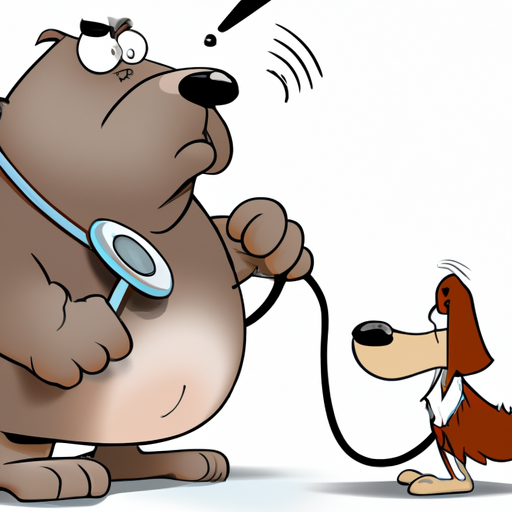As a caregiver to your furry friend, you might have heard your dog’s stomach making unusual noises at times. This article will delve into the reasons, implications, and solutions related to your dog’s stomach growling.
1. Understanding Your Dog’s Stomach Growling
Like humans, dogs also have a digestive system that makes sounds. These noises are typically benign and are often a result of gas moving in the intestines or hunger. However, if the growling is accompanied by other unusual symptoms, it could indicate a more serious condition.
Why does a dog’s stomach make noises?
- Hunger: The most common reason for a dog’s stomach to growl is hunger. When your dog’s stomach is empty, it may release gastric acids, and the empty stomach may make these noises more audible.
- Digestion and Gas: The process of digestion involves the movement of muscles in the digestive tract, which can cause sounds. Also, the breakdown of food produces gas, and the movement of gas can also lead to stomach noises.
- Gastrointestinal issues: Sometimes, excessive stomach noises could indicate a gastrointestinal issue, such as inflammatory bowel disease, intestinal parasites, or gastroenteritis.
2. When Should You Be Concerned?
It’s important to identify when your dog’s stomach noises are a cause for concern. Keep an eye out for these symptoms:
- Loss of appetite
- Lethargy
- Diarrhea or vomiting
- Excessive gas
- Weight loss
If your dog exhibits any of these symptoms along with a noisy stomach, it’s time to consult a veterinarian.
3. How to Soothe Your Dog’s Growling Stomach
If your dog’s stomach is growling but not accompanied by any severe symptoms, there are a few things you can do to soothe their stomach:
- Feed smaller, more frequent meals: Instead of two large meals, try to break them into smaller meals spread throughout the day. This can help prevent the stomach from becoming too empty, reducing the occurrence of stomach noises.
- Try a different diet: Some dogs may have sensitive stomachs and might not react well to certain types of food. Talk to your vet about possibly changing your dog’s diet.
- Ensure your dog is dewormed: Intestinal parasites can cause a host of problems, including a noisy stomach. Regular deworming can help prevent this.
| Action | Description |
|---|---|
| Feed small meals | Smaller, more frequent meals can help regulate your dog’s digestion and reduce stomach noises. |
| Change diet | Some dogs may be sensitive to certain foods. A dietary change may be needed. |
| Deworming | Regular deworming can prevent intestinal parasites, which can cause stomach noises. |
4. When to Consult a Vet
If your dog’s stomach noises are accompanied by other severe symptoms, it’s important to consult a vet immediately. Your vet will conduct a thorough examination and may recommend tests to determine the underlying cause.
5. FAQs
Q: My dog’s stomach is growling, but he’s acting normal. Should I be worried?
A: If your dog is acting normal, without any signs of discomfort or change in behavior, the stomach growling is probably normal. However, if it persists or is accompanied by other symptoms, consult a vet.
Q: Can I give my dog something to stop the growling?
A: It’s not advisable to give your dog any medication without consulting a vet. However, you can try feeding smaller, more frequent meals or consider a diet change.
Q: How often should I deworm my dog?
A: The frequency of deworming depends on your dog’s lifestyle and risk of exposure. It’s best to consult with your vet for a personalized recommendation.
Remember, as a caregiver, your keen observation and prompt action can ensure your dog’s wellbeing. So, don’t ignore persistent stomach growling and seek medical advice when needed.



